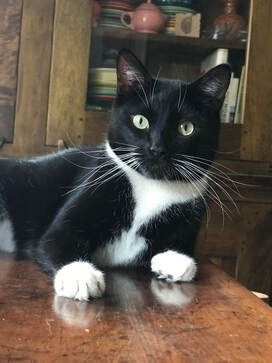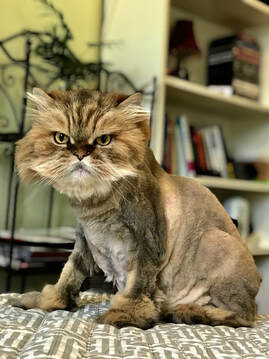And the truth is there’s no straightforward answer (helpful right…)
To better understand if CKD is preventable, we first need to look at the causes of this
condition.The causes can be split into two main categories: Congenital (conditions present from birth)or Acquired (conditions that your cat will have developed over time).
Cats with a Congenital conditions are likely to have either Polycystic Kidney Disease, Renal Dysplasia or were born with only one kidney. Each of these conditions drastically affect your cat’s kidney function from the offset, and therefore make it very tough to prevent CKD in the future.
Cats that Acquire the condition over time may have suffered from a bacterial or viral
infections, an inflammatory condition, have been exposed to toxins ( for example anti-
freeze, grapes, raisins or lilies), had trauma to the kidneys or have been diagnosed with a form of cancer. Although it is still not possible to say that any of the acquired conditions listed above are preventable, there are several strategies cat owners can carry out at home to promote their cat’s health as they get older. These can include:
Maintaining a healthy diet - particularly for older cats there are specialist foods
available to promote the health of their kidneys.
Hydration levels – Ensuring your cat remains hydrated is key to maintaining the
health of their kidneys. Remember, cats tend to only drink from a full bowl of water
or even better, running water, which is why cat drinking fountains make an
excellent aid for ensuring your cat stays hydrated.
Vets check-ups – Even if you think your cat’s health is in good condition, it is always
important to attend their annual vet check-up to ensure any concerning symptoms
are spotted as quickly as possible. This is particularly important in catching any
bacterial or viral infections early which could lead to CKD. Treating these ailments as
early as possible will help snuff out any chance of future kidney complications.
The system ranges from mild to severe and again although it may not be possible to prevent your cat reaching the severe stage of CKD, understanding the symptoms present with CKD may help you to spots the signs and get an earlier diagnosis. These include but are not limited to:
- Loss of weight
- A lack of interest in food or a reduced appetite
- Signs of dehydration, including: dry gums and when your cats skin on the back of their neck does not spring back rapidly after being lifted
- An increase in thirst
- An increase in urination
- Signs of lethargy and appearing more tired than usual
- Vomiting and or constipation
- Signs of mouth ulcers developing, which can lead to bad breath
Remember, if you ever have any concerns about your cat’s health, it is always best to book an appointment with your vet. They will be able to answer any of your questions and give you peace of mind.
We hope you’ve enjoyed the article, our friends at Scruffy Paws Nutrition have made it their mission to improve the lives of cats everywhere! They do this by creating treats, drops and chews that contain scientifically backed active ingredients to support your cats health
Check them out here: scruffypawsnutrition.com



 RSS Feed
RSS Feed

